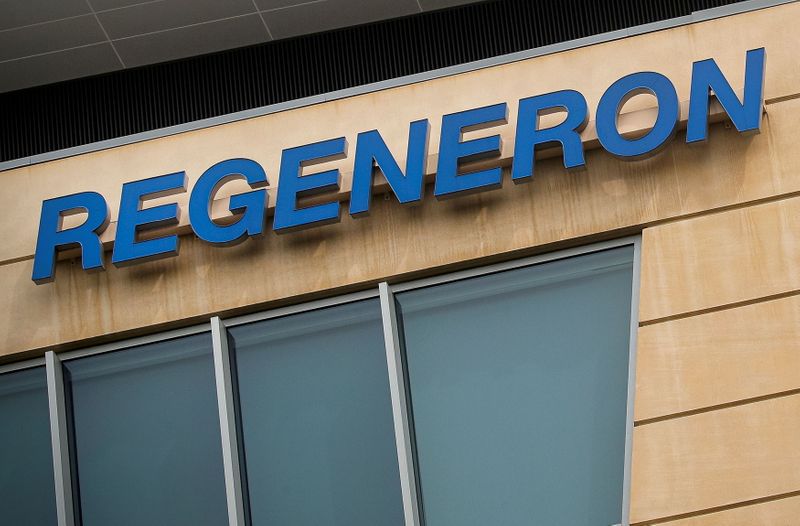(Reuters) – Regeneron Pharmaceuticals Inc said U.S. health regulators were doing a careful analysis of its experimental antibody cocktail to treat COVID-19 and that it was hopeful the drug could be authorized for emergency use in the country soon.
The treatment, which was given to U.S. President Donald Trump during his COVID-19 infection, has been under review by the U.S. Food and Drug Administration since last month.
“We hope that it (review) will reach a successful conclusion. But we don’t know the timeline,” Regeneron Chief Executive Officer Leonard Schleifer said during a conference call to discuss the company’s earnings.
The company has said that clinical trial data shows the drug reduced medical visits in patients with mild-to-moderate cases. The antibody treatment would be the first drug designed specifically to fight COVID-19 and could become a tool in the coronavirus pandemic that has killed more than one million people globally.
Based on clinical trials, Regeneron expects emergency use authorization could be granted for outpatients, a group that it believes would benefit the most from the drug.
About 80,000 doses of the treatment could be ready by the end of this month, and 300,000 doses by the end of January, Regeneron said.
The company has been working to scale up production of the drug, and raised its forecast for 2020 research and development expenses to between $2.75 billion and $2.82 billion, from its prior forecast of $2.61 billion and $2.73 billion. It would also result in higher expenses in the first half of 2021.
The company said last week that COVID-19 patients receiving advanced care in the hospital are no longer being enrolled in clinical trials after a data panel signaled a potential safety signal and an unfavorable risk-benefit profile.
“I think theoretically, there is not really a great deal of rationale why there might be a safety signal,” said George Yancopoulos, Regeneron’s chief scientific officer.
On Thursday, a data committee for large UK trial that is testing several potential drugs for COVID-19, including Regeneron’s REGN-COV2, said the trial should continue enrolling all patients, including severe patients.
The committee said that its decision was prompted by data from over 15,000 patients, and available external information.

























